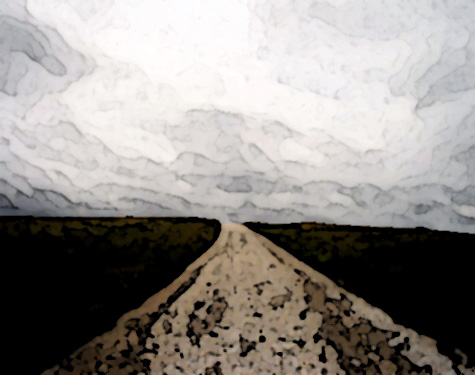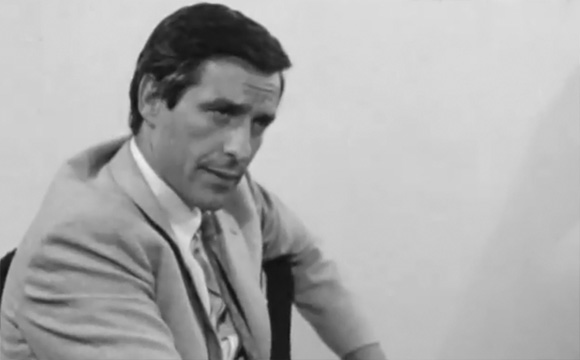Author Archives: Cimaxion
Photo: Color Catastrophe
Salma: Tragedy in a War Torn City
This is an animation by Anders Friis Christiansen, Martin Sand Vallespir, Kirsten R. Grann, Michael Nielsen, Astrid M. Lauridsen, and Rikke Skovgaard of the Animation Workshop in Denmark. A young girl loses her father in a war-torn city after an accident with a cluster bomb.
Filmmakers of Our Time: John Cassavetes – 1968 French Documentary
John Cassavetes’ first film was called ‘Shadows.’ It was made in 1959 and I think it might be the greatest film about race in America that’s ever been made. Cassavetes has always struck me as having an element of that required con-man aspect of the personality that is present in many good actors. When he talks he seems impressed with what he is saying and he knows how to deliver it with just the right amount of humor and a few self-deprecating remarks. But he means every goddamn word of it and he puts all of his thoughts into his film works. He’s one of those rare objects of confusion that sometimes crop up in American art. I’ve been watching a bunch of his films lately and I don’t think I’ve ever seen a filmmaker so interested in looking at the inability of the American adult to understand or even perceive the meaning of their habitual mannerisms. For me, his films illuminate what it means to be a grownup and how the performance required of grownups contrasts with what they really want to be.
Cassavetes on making ‘Shadows:’
That people can go out with nothing and through their own will and through their determination make something that exists… out of nothing. Out of no technical know-how, no equipment. There wasn’t one technician on the entire film. There wasn’t anybody who knew how to run a camera… walked in and started to read the directions of how to reload it. Got a Movieola and looked at it. Did all the things in the world and we made eight million mistakes. But it was exciting and fun.
This is a 1968 French documentary that was probably shot just after or during the making of his great marriage disaster film, ‘Faces.’
Weird Tales: The Narrow Road
 By Quenby Eisenacher
By Quenby Eisenacher
The Narrow Road
The road doesn’t run in a straight line, splitting the vast plain in half. It curves back and forth, winding around nothing, a ribbon of hard-packed dirt and stones that meanders toward the silvery haze of the horizon. There’s a cloud of dust thrown up behind the bus, the rear windows already coated with a layer of grime that even the daylight can’t penetrate. Every few minutes, one of the larger stones gets chucked up into the undercarriage, striking hard and fast, the sound too much like a gunshot. A few of the children wince at the noise, their eyes squeezing shut, scuffed skin pulled taut over their white knuckles. Karin glances at the boy beside her, the one with the mud caked into the ends of his straw-colored hair. She could speak to him, she thinks, just a few words to show that she doesn’t want to be a stranger. But the words fail to come, her tongue clinging to the roof of her mouth, swollen and thick, as if she’s forgotten how to make it work.
Over another bump and she closes her eyes, her toes curling inside the stiff brown shoes on her feet. Swinging her right leg, she taps the seat in front of her with the tip of her cracked toe, the edge of  her blue sock just visible where the upper pulls away from the sole. The head in front of her doesn’t turn, black braids neatly parted and tied up at the bottom with little bits of red ribbon. Karin looks at the ribbon for a moment, at the dull film of dust hiding the shine of satin from view. Her eyes are still fixed on the vivid strips of cloth as her fingers find her own hair, loose and scraggly around her shoulders. She wishes she had ribbon like that, and swings her foot into the back of the seat one more time.
her blue sock just visible where the upper pulls away from the sole. The head in front of her doesn’t turn, black braids neatly parted and tied up at the bottom with little bits of red ribbon. Karin looks at the ribbon for a moment, at the dull film of dust hiding the shine of satin from view. Her eyes are still fixed on the vivid strips of cloth as her fingers find her own hair, loose and scraggly around her shoulders. She wishes she had ribbon like that, and swings her foot into the back of the seat one more time.
The window is on the other side of her, close enough that she can press her left shoulder against the glass and silence the rattle inside the frame. There’s not as much dust either, being only a few seats back from the driver. For a moment, she feels bad for the children in the rear, the ones next to the filthy windows, cut off from the light and the scenery trundling past them on all sides. Not that there’s much to see, but it’s better than staring at the floor. Crossing her arms until her hands are hidden inside her sleeves, she leans back, her chin tucking into her shoulder, one dirty lock of hair sliding out from behind her ear as she fixes her gaze on some imaginary spot far off in the distance.
Continue reading




